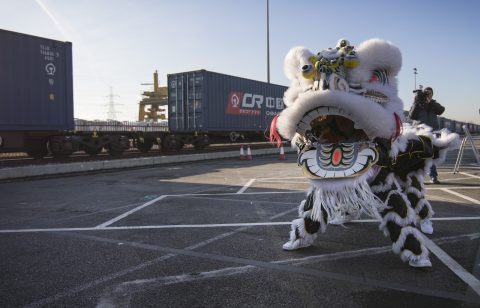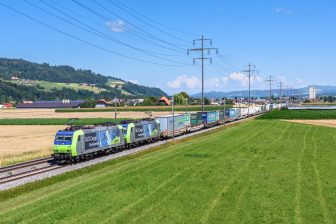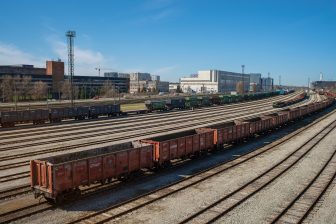
China-London service shows post-Brexit trade potential, says RFG
The launch of the first-ever China-London direct cargo service should be the catalyst for a new era of rail-led imports and exports, says Rail Freight Group (RFG) Executive Director Maggie Simpson. She believes that in the aftermath of the UK ‘Brexit’ vote, a service which extends beyond Europe’s borders puts a renewed focus’ on the importance of trade.
“It is rare, indeed practically unheard of, for rail freight to feature on headline news, but in early January the arrival in Barking of the first train to operate from China did seem to capture the public imagination,” she says.
Laden with high street goods destined for western consumers, the 34-wagon train had made an 18-day transit from Yiwu Xi station in China’s Zhejiang province, travelling via Russia, Kazakstan, Poland, and Germany and the Channel Tunnel to reach the UK.
International work
“Coupled with the work by GB Railfreight (GBRf) and B Logistics, and the Ministry of Defence utilising civilian freight operators on exercises through the Channel Tunnel, so far 2017 has seen some impressive international work,” writes Ms Simpson in the latest RFG newsletter.
“Perhaps it is not the romance of the ‘new silk road’ that caused such interest, but a renewed focus and understand on the importance of UK trade, particularly as we head towards Brexit. For it highlights that as well as what we trade, and what tariffs any deal contains, how we get our goods to and from market is also critical.”
Describing modern supply chains as ‘complex and international by nature’, Ms Simpson uses the example of a car made in the UK as containing a significant proportion of imported parts.
Supply chain
“Some of the UK-made components will themselves have imported parts,” she says. “What is essential is that the car is made to the specification and delivery times agreed with the customer, and manufacturers will therefore include supply chain factors in their purchasing decisions.
“The new China trial has potential because it opens up a journey time advantage of up to three weeks compared to shipping. This allows the UK to compete with those in mainland Europe who have been able to access similar services for several years. Of course, it will never substitute for shipping so we also need to make sure that we continue to develop our trade links to and from ports.”
The UK government, in her view, only ‘sort of gets this’, even though there has been what she calls ‘good investment’ in rail links to ports through the Strategic Freight Network.
Coherent plan
“Yet the recent consultation on Industrial Strategy was silent on freight, albeit supportive of rail investment for passengers. And even more worryingly is the absence of a coherent plan for ensuring goods can pass quickly and efficiently through ports once we leave the customs union.
“Rail freight has a significant role to play in helping the effective movement of imports and exports, be that the Channel Tunnel or through the ports, but we need to demonstrate why the nation’s trade – and economy – so relies on our effective delivery. Initiatives like the China train are a good start in achieving this.”





